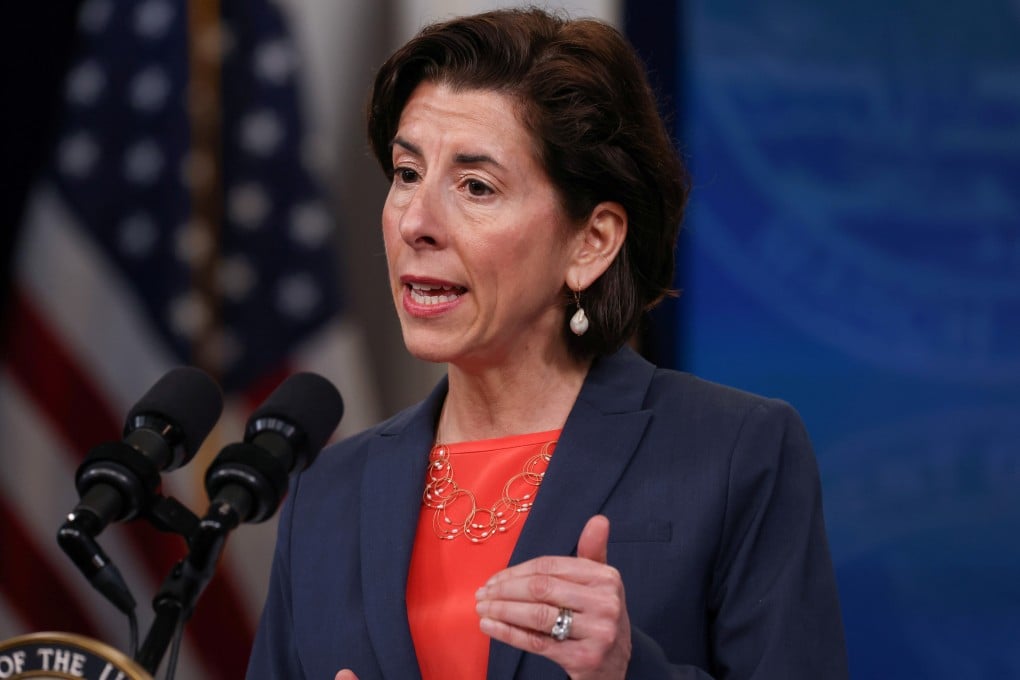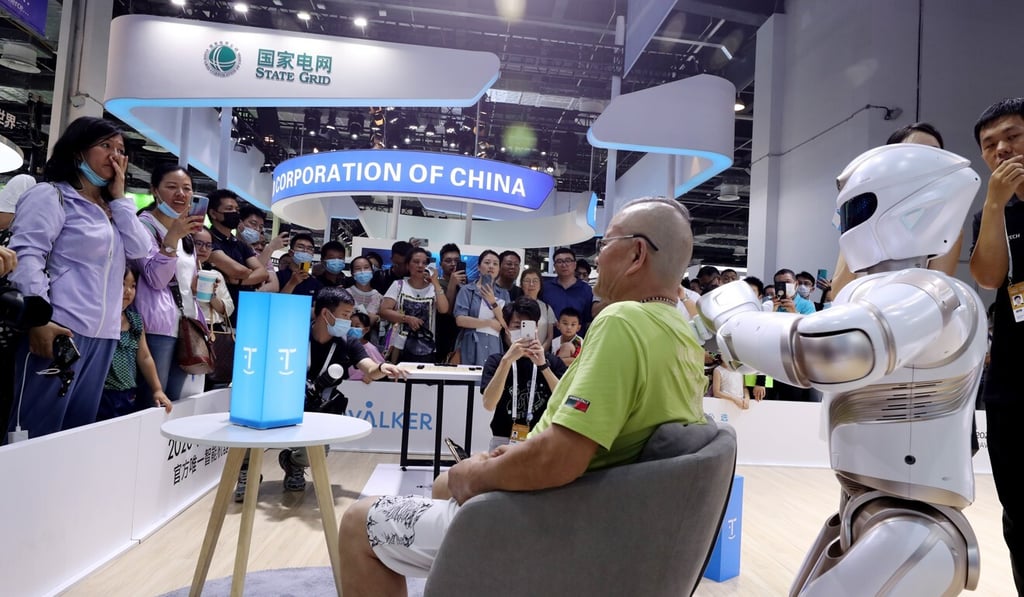US and allies must set ‘democratic’ rules for artificial intelligence, Biden administration officials say
- ‘We can’t let China write the rules for AI,’ Commerce Secretary Gina Raimondo tells Global Emerging Technology Summit
- US National Security Adviser Jake Sullivan claims alternative is ‘a vision of the future that says you have absolutely no privacy, no trust, no security’

Senior White House officials appeared at a conference on emerging technologies to reinforce the message that Washington and its allies must close ranks to ensure that advances in artificial intelligence are developed in accordance with “democratic values”, and not left to China.
“We can’t let China write the rules around AI,” US Commerce Secretary Gina Raimondo told the Global Emerging Technology Summit in Washington.
“It’s important that AI is developed in a way and regulated in a way that is consistent with our democratic values of freedom and openness, protection for intellectual property, respect for human rights and respect for privacy.”

The new US-EU Trade and Technology Council (TCC) would be a forum to tackle the issues, Raimondo said, of how best to innovate in the digital economy, AI and other emerging technologies.
“There’s a great focus on China. We need to run faster. If we work with allies, we will be stronger,” Raimondo said at the conference, which was organised by the National Security Commission on Artificial Intelligence (NSCAI). “The president is crystal clear and has directed us on his team to reach out to our allies.”
Chaired by the former Google chief executive Eric Schmidt, the NSCAI was established in 2018 as part of that year’s US National Defence Authorisation Act primarily to contend with risks policymakers and lawmakers saw in China’s technological advances.